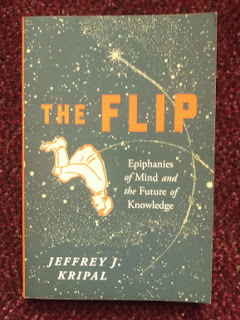Philosophical Foundations of Neuroscience by M. R. Bennett and P. M. S. Hacker

This book was written by a neuroscientist and a philosopher. I am qualified in neither of those disciplines, so I can't give it a full specialist review. But it was written for the non-philosophical public, especially neuroscientists. I'm sure I'm not on my own in consuming interpretations of neuroscience, so here's my two penn'orth. Much of what scientists say about neuroscience is highly dubious; that's what this book is about - unpicking the meaningless statements that experts have made. The philosophy author, Dr Hacker, is a specialist in Wittgenstein-style analysis of statements and claims, and he is trying to return the interpretation of neuroscientific data to the terms of lived human experience, so that it actually makes sense in plain English. I've thought for a long time that there's a lot of nonsense in what are presented as the 'findings' of neuroscience. We get headlines such as 'yes it's true we really do (eg - ...
